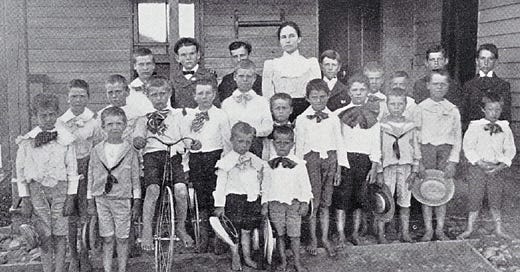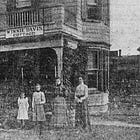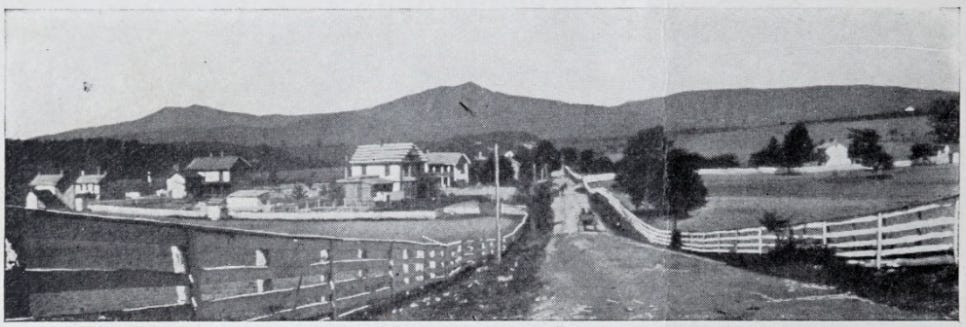The door [at Whosoever Farm] in Luray, Virginia is open for destitute children without regard to creed or denomination, preference being given to the children of the fallen and outcast. The railroad and turnpike run through the farm, the water is abundant, the fine mountain air and the charming scenery make it peculiarly fitted for this enterprise. It is about five hours from Washington. — From a Wharton Orphanage prospectus
In Case You Missed It …
FROM THE LEXINGTON (MISSOURI) INTELLIGENCER - NOVEMBER 30, 1901
The Whosoever Farm in Virginia
Its Originator was the Rev. Dr. Wharton, Now Preaching at the Lexington Tabernacle
A HAVEN OF REST FOR HELPLESS CHILDREN
The "Whosoever Farm" at Luray, Virginia, a home for destitute children, grew out of the work of the Rev. Dr. Wharton, who is now con-ducting revival services in Lexington and that God's hand is in the labor all will admit. Dr. Wharton thus describes the first incident that lead to the founding of this home for the helpless:
About fourteen years ago while I was pastor in the city of Baltimore, I was walking along the street one day and met a lady who informed me that there were three little children of her acquaintance in desperate circumstances and entirely without assistance. She begged me to look after them, stating that their father had been killed, and their mother was in the penitentiary.
For several days, these little unfortunate ones were on my heart. Not knowing what to, I called a widow lady of my acquaintance who had a very comfortable home and no one living with her except her niece.
I proposed for them to take these children on the condition that I would be responsible for their board and clothing. They asked for time to consider the proposition, and a week later agreed to take them.
In less than a year there were 20, and in three years, 60 children to be cared for. We had to change our quarters twice to get more comfortable places. Having a small farm near Luray, Virginia in my possession, I determined to move these children to that point on account of the healthfulness of the place and the possibility of separating them from all influences that were not of the best character.
The years have passed on, the work has had its ups and downs, it’s bright days and dark days, it’s sick days and well days, but the children have never been without meals, good clothing and shelter.
From the very first, it has been non-sectarian, the only requirement being destitution. This its name imports; it is for ‘whosoever’ needs its care and aid.






